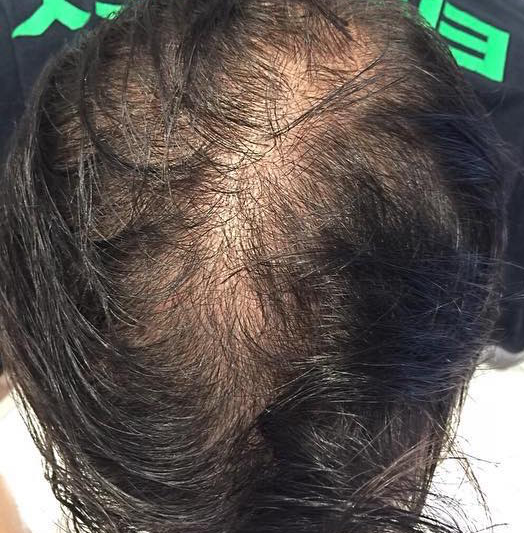Home / Scalp Issues / Dandruff
Dandruff
https://youtu.be/QTmZaia1eDc
Most people have had or will experience some degree of dandruff during their life. If you have a flaky/itchy scalp, don’t be embarrassed: you are not alone and there are many effective products available to treat it. ‘Dandruff’ describes scalp flaking. However, there are various degrees of severity ranging from common dandruff, i.e. loose or tight flakes, to more severe seborrheic dermatitis.
The most common type of dandruff is ‘pityriasis capitis simplex’ or ‘pityriasis steatoides’. It usually comes and goes and you may find it flares up under stress. Mild to moderate dandruff is easily treated with over-the-counter shampoos, toners and scalp creams. However, a severe build-up of flakes may need to be treated with stronger prescription products, as it can cause severe discomfort and may eventually lead to some hair loss.
Make an appointment to see a Trichologist if you are concerned or over-the-counter treatment isn’t working. Please note: dandruff is a non-inflammatory scalp condition, it should not cause redness, unless you are scratching your scalp repeatedly. If your scalp is red, you may have a different scalp condition and should see a Trichologist.
SYMPTOMS OF COMMON MILD TO MODERATE, DANDRUFF
Flaking of the scalp and an itchy or irritated scalp. The appearance of white flakes on your shoulders, flakes on the scalp and/or some throughout your hair.
SYMPTOMS OF SEVERE DANDRUFF OR SEBORRHOEIC DERMATITIS
Patchy yellowish flakes on your scalp with redness and soreness; many and obvious flakes throughout the length of your hair which are tight and adherent. It can also affect eyebrows, and may cause redness around the nose.
THE SIMPLE SCIENCE BEHIND DANDRUFF
Skin Shedding
Your skin is shed and replaced constantly, including the skin on your scalp. Dead skin is washed away when you bathe and rubbed off by your clothes. On your scalp it is removed when you shampoo, so you usually don’t notice it. Scalp skin shedding becomes noticeable when there is an imbalance of bacteria on your scalp, or if you aren’t washing your hair frequently enough.
Our skin is covered in millions of micro-organisms – otherwise known as bacteria, germs or ‘skin flora’. Your skin secretions, sweat and sebum, usually form a protective layer that prevents bacteria from multiplying on your scalp. However, factors such as illness, stress, diet and hormonal fluctuations can disrupt this barrier, allowing bacteria to multiply and this can lead to excessive shedding of your scalp skin, or ‘dandruff flakes’.
POSSIBLE CAUSES OF DANDRUFF
Poor hygiene and infrequent shampooing
A diet rich in fatty, salty or sugary foods
Cheese, white wine and champagne
Hormonal changes and fluctuations
Psychological or physical stress
Cold or dry weather and climate
Pre-Menstrual Syndrome
TREATMENT - PRODUCTS
A common misconception is that dandruff is caused by a ‘dry scalp’. However, dandruff is usually found on oily scalps. Do not put or rub oil into your scalp as this will only make the flakes oiler and stickier. For immediate relief there are shampoos, scalp toners and scalp masks available. We suggest you use Flaky/Itchy Scalp Shampoo and Flaky/Itchy Scalp Toner daily until your dandruff has cleared, and then alternate every other day with your regular shampoo for a couple of weeks after.
An Exfoliating Scalp Mask should also be applied once a week to help clear flaking and itching. If you have moderate to severe dandruff, you can ask your chemist or pharmacist to make a cream for you - 1% each of sulphur and salicylic acid mixed in an oil-in-water emulsion can be very effective.
Apply before shampooing in 1-inch partings and massage into your scalp. Leave for 10-15 minutes then wash out with Flaky/Itchy Scalp Shampoo, and follow with the correct conditioner for your hair texture.
DIY SCALP TONER FOR FLAKY/ITCHY SCALPS
Shake together an antibacterial mouthwash of your choice with an equal quantity of witch hazel. Wash your hair and towel dry it. Apply some of the mixture all over your scalp in 1-inch partings from ear to ear. Rub in lightly with your fingertips and leave on. Style and blow-dry your hair as usual.
DIET AND LIFESTYLE
If you have a mild to moderate flaky and/or an itchy scalp, it’s a good idea to look at your diet and lifestyle. The condition of your scalp can often be improved by making simple changes. Try to restrict dairy products for a few weeks as dairy can exacerbate flaking and eczema. Also, cut back on foods rich in salt, ‘bad fats’ and sugar. Taking time out for yoga, meditation, general relaxation and fitness which can help manage stress levels and sometimes reduce the severity and frequency of dandruff.
PHILIP KINGSLEY PRODUCTS FOR FLAKY/ITCHY SCALPS
Flaky/Itchy Scalp Shampoo
Flaky/Itchy Scalp Toner
Exfoliating Scalp Mask
WHEN TO SEE A TRICHOLOGIST
If you have severe redness or discomfort on your scalp, especially when accompanied by hair loss, you should make an appointment to see a Trichologist as soon as possible. Using some or all of the above forms of treatment will clear up most forms of dandruff. If not, you may have one of the following conditions that can also cause scalp flaking and should see a specialist:
Psoriasis
Pityriasis Amientacea
Neurodermatitis
Contact Dermatitis
Folliculitis
Ringworm
Rosacea
Lichen Simplex
Learn more about:
Why Nina Ross Hair Therapy?
State of the art + PERSONALIZED TREATMENTS
Founder of NRHT - Shanina "Nina Ross" Lassiter
Transformations
View Real Patient Before & Afters
Reviews
see testimonials from current clients
Get answers from a specialist












